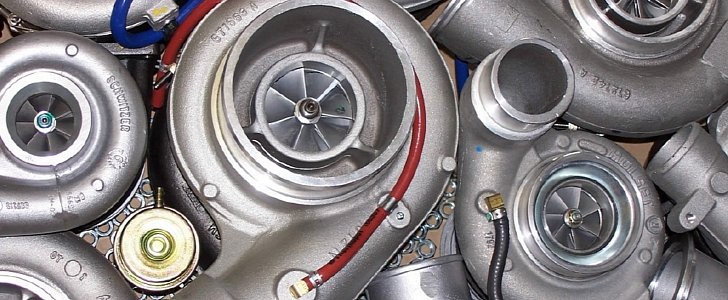A Full Guide to Picking the Right Engine for Your Job
Selecting the appropriate engine for your job is a crucial choice that can substantially impact its general success. It is important to carefully specify your task needs, assess efficiency requirements, and think about user-friendliness alongside other important aspects. In addition, comprehending the area support readily available and looking at expense effects can additionally refine your choice. Each of these aspects plays an essential role in guaranteeing that your chosen engine not just meets instant goals yet also lines up with lasting aspirations. As we explore these considerations, you might locate that the nuances of each aspect expose greater than initially expected.
Specify Your Job Needs
Specifying your job requires is a critical action in choosing the proper engine for successful execution. A detailed understanding of your task's goals will assist you in determining the abilities and attributes needed from an engine. Begin by describing the extent of your job, consisting of the desired capability, target audience, and the details results you aim to achieve.
Next, take into consideration the technical needs that line up with your project objectives. This includes examining the compatibility of the engine with existing systems, along with the programs languages and structures that will be used. Additionally, analyze the degree of scalability called for to accommodate future development or changes in demand.
Spending plan restrictions likewise play an essential function in defining your job requires. Develop a clear monetary framework to direct your decision-making procedure, making sure that the engine selected fits within your budget plan while supplying the required functionality.
Evaluate Performance Needs

Engines that sustain straight scaling are often preferable for bigger applications. Additionally, assess the engine's performance under various problems, such as peak use circumstances, to guarantee it satisfies your reliability criteria.
Take Into Consideration Convenience of Use
While technical specs are necessary, the simplicity of use of an engine can substantially influence the advancement process and total task success. An instinctive user interface, clear paperwork, and streamlined workflows can considerably decrease the learning contour for developers, enabling them to concentrate on imagination and analytic as opposed to coming to grips with facility devices.
When examining an engine's simplicity of use, take into consideration the onboarding experience. A well-structured introduction, total with tutorials and sample projects, can assist in a smoother shift for brand-new individuals. Additionally, the quality and comprehensiveness of the engine's paperwork play an important function; extensive overviews and API references can encourage programmers to fix and apply functions successfully.
An engine that permits for very easy adjustments can be a lot more user-friendly, as designers can tailor it to fit you can try here their particular requirements without extensive hassle. Eventually, picking an engine that prioritizes convenience of use can lead to a more effective and pleasurable development experience.
Assess Neighborhood and Support
The stamina of an engine's area and support network can considerably influence a developer's experience and success. A vivid area frequently shows a wide range of shared knowledge, resources, and repairing help that can improve your task's advancement process. When examining an engine, think about the dimension and activity level of its community. Larger neighborhoods commonly supply a lot more online forums, tutorials, and third-party plugins, enabling programmers to discover services more efficiently.
Moreover, assess the availability of main assistance channels. Trustworthy paperwork, responsive customer support, and normal updates are important for addressing technical problems and maintaining your project on the right track. Engines For Africa. Active neighborhoods likewise promote partnership, providing opportunities for networking and feedback, which can be very useful, specifically for tiny groups or independent programmers
Additionally, examine the presence of community-run occasions, such as meetups or hackathons. These gatherings can enrich your understanding of the engine while attaching you with seasoned customers and prospective partners. In summary, a durable area and support group not just streamline development but additionally produce a setting for finding out and development, ultimately enhancing the possibility of your project's success.
Contrast Expense and Licensing Alternatives
Budget factors to consider play an important function in selecting the ideal engine for your task, as the cost and licensing alternatives can substantially influence both short-term expenses and long-lasting feasibility. Engines For Africa. Various engines offer varying prices structures, which can include single acquisition fees, subscription designs, or revenue-sharing arrangements based on your task's revenues

Accrediting alternatives also differ substantially. Some engines are open-source, supplying flexibility and community-driven support, while others may require proprietary licenses that restrict usage and distribution. Understanding the effects of each licensing model is crucial, anonymous as it affects possession legal rights, future scalability, and prospective lawful obligations.
Final Thought
In final thought, choosing the ideal engine for a job demands a detailed analysis of defined job requirements, efficiency requirements, convenience of use, neighborhood assistance, and price factors to consider. By methodically resolving these vital variables, decision-makers can ensure positioning with both future and present job demands. A knowledgeable option ultimately boosts the probability of job success, allowing effective source appropriation and making the most of prospective outcomes within the specified financial restraints.
Picking the proper engine for your job is a crucial decision that can considerably affect its overall success.Specifying your task requires is a critical step in selecting the proper engine for successful implementation. A comprehensive understanding of your task's purposes will certainly lead you in identifying the functions and abilities needed from an engine.Once you have a clear understanding of your task requires, the following step is to assess the performance requirements of the engine.In final thought, choosing the proper engine for a job requires a complete examination of defined job demands, efficiency demands, convenience of use, community support, and cost factors to consider.